.jpg?width=900&name=Blog_Pressure%20Sensitive%20Bottle%20Labels_900x450%20(2).jpg)
When it comes to product marketing, smaller businesses do not always have the resources for shrink-sleeve bottle labeling machines. Due to the specialized equipment, this type of bottle labeler can require a larger investment. However, sticking to traditional hand labeling methods lacks the flexibility needed for quick market response and customization. Such limitations can lead to packaging inefficiencies, limited design options, and ultimately, customer dissatisfaction. This can stifle creativity and hinder a brand's ability to adapt to evolving consumer trends or seasonal promotions, which are crucial for staying relevant in a fast-paced market. However, there is a viable solution: pressure-sensitive labels. These bottle labels are designed to reduce costs, enhance operational efficiency, and provide the versatility required by today's dynamic market demands. Pressure-sensitive labels offer a straightforward application process without the need for complex equipment or extensive training, making them ideal for businesses seeking to maintain agility and competitive edge.
5 Reasons to Use Pressure-sensitive Labels

Pressure-sensitive labels come with a variety of benefits that can transform your product packaging and branding efforts. Here are five reasons why they should be a top consideration for your business.
1. Durability: Keeping Your Brand's Image Intact
Pressure-sensitive labels are built to remain durable in various environments, ensuring that your product looks as good in the consumer's hands as it did leaving the production line. Capable of withstanding exposure to moisture, heat, or extreme cold, pressure-sensitive labels maintain their clarity and adhesion, safeguarding your brand's image over extended periods. This resilience is particularly crucial in industries like food and beverage or pharmaceuticals, where products may be subjected to harsh conditions in a refrigerator or outdoors. The durability of these labels means that essential information and branding remain legible and intact, avoiding the wear and tear that lesser-quality bottle labels often experience.
2. Customization: Tailoring Labels to Fit Your Unique Needs
The high degree of customization offered by pressure-sensitive labels allows businesses to align their labeling with brand aesthetics and marketing goals perfectly. Companies can select from an extensive variety of sizes, shapes, designs, and materials, creating labels that not only meet functional requirements but also enhance visual appeal. This adaptability is a powerful tool for strengthening brand identity and differentiating products in a crowded marketplace. Many successful brands have leveraged the versatility of pressure-sensitive labels to create eye-catching designs that resonate with consumers and tell a compelling brand story, driving increased engagement and sales.
3. Versatility: Adapting to Diverse Packaging and Surfaces
Pressure-sensitive labels excel in their ability to adhere flawlessly to a variety of surfaces and conform to different packaging types, from glass and plastic to metal. This unmatched versatility ensures that no matter the packaging material or design, pressure-sensitive labels can be used effectively, providing consistent performance and maintaining aesthetic quality. This flexibility benefits businesses managing multiple product lines or varying packaging formats because it allows for uniform branding across all items. Whether labeling primary containers or secondary packaging, pressure-sensitive labels simplify logistics and enhance the visual coherence of products on retail shelves.
4. Cost-Effectiveness: Maximizing Efficiency Without Compromising Quality
Adopting pressure-sensitive labels can lead to substantial cost reductions, streamlining the production process by eliminating the need for specialized bottle labeling machines and extensive setup times associated with traditional methods. The straightforward application process of pressure-sensitive labels reduces labor costs and minimizes production delays, enabling businesses to maintain high throughput rates without compromising on the quality of the output. These efficiencies make pressure-sensitive labels a cost-effective solution for companies looking to optimize their labeling operations and improve their bottom line, all while maintaining high standards of product presentation.
5. Flexibility: Meeting to Changing Market Demands
The marketplace demands agility and the ability to respond to consumer trends and regulatory changes quickly. This is where pressure-sensitive labeling particularly stands out. pressure-sensitive labels allow for fast updates to label designs, whether adjusting for promotional offers, tweaking designs, or updating compliance information. This flexibility ensures that businesses can quickly pivot their labeling strategies to reflect current market conditions and consumer preferences, maintaining relevance and compliance. By enabling easy and cost-effective updates, pressure-sensitive labels help businesses stay competitive in a fast-paced market environment, adapting seamlessly to evolving demands without significant downtime or expense.
Adaptability Sets Pressure-sensitive Labels Apart

Pressure-sensitive labels are characterized by their exceptional adaptability. Whether a company is a large-scale manufacturer requiring consistent labeling for thousands of items or a small producer looking for flexible, low-cost solutions for limited runs, pressure-sensitive labels can meet these diverse needs. These bottle labels are expertly designed to conform to a diverse array of product shapes and sizes, which not only ensures a smooth application but also guarantees strong adhesion even under challenging conditions. This adaptability makes pressure-sensitive labels particularly valuable for industries that deal with non-standard or uniquely shaped containers, such as curved beauty product bottles, irregularly shaped specialty food packages, or even flexible surfaces found in industrial applications.
The easy application also means that businesses can use them on a variety of materials, including glass, plastic, metal, and even textured fabrics, without worrying about the bottle labels peeling off or losing their visual appeal over time. Their ability to withstand environmental factors such as moisture, temperature changes, and exposure to chemicals enhances their suitability for products that must endure harsh or variable conditions. This could include outdoor equipment, automotive parts, and gardening supplies, where durability and long-lasting readability are crucial. The adaptability of pressure-sensitive labels is a powerful tool that helps businesses maximize their market potential by enhancing product presentation, expanding operational flexibility, and reducing logistical complexities.
Enhance Your Product Presentation With Pressure Sensitive Labelers
The benefits of pressure-sensitive labels are clear. They not only enhance brand visibility and operational efficiency but also significantly boost customer satisfaction. These bottle labels encourage rapid adaptation to market changes and consumer preferences, allowing brands to implement new designs or promotions quickly. Its easy application reduces downtime, accelerating the production cycle and enabling businesses to respond more swiftly to market demands. Businesses looking to upgrade their bottle labeling machines should consider pressure-sensitive labels as a strategic choice to stay competitive and responsive in the marketplace. To find the right pressure-sensitive labeling solutions for your needs, download our free guide, "Practical Guide to Choosing Labeling Equipment," and take the first step towards transforming your product presentation and market impact. This guide will provide you with detailed insights and practical tips to help you make informed decisions about integrating an advanced bottle labeler into your production line.
.webp?width=200&height=135&name=2x-Packleader-logo-large%20(1).webp)

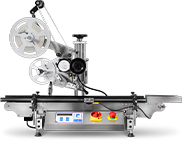
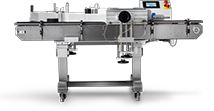
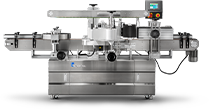
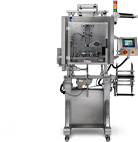
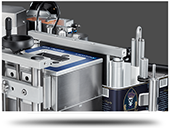
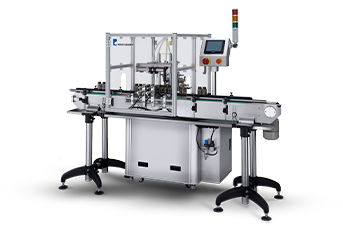
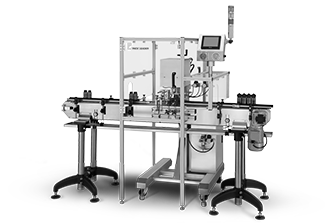
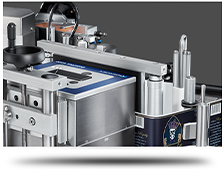





.webp?width=360&name=2x-color-logo%20(1).webp)